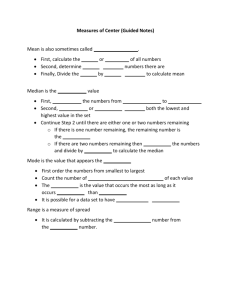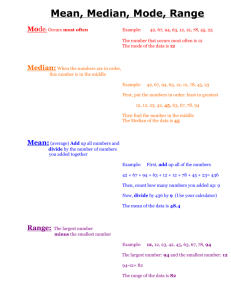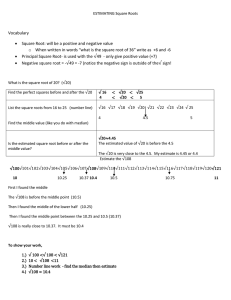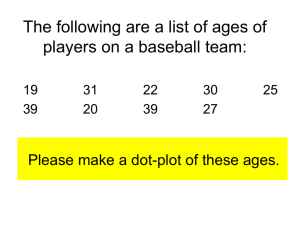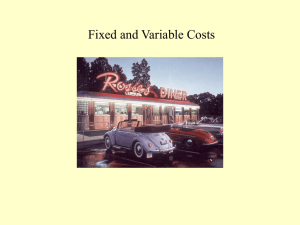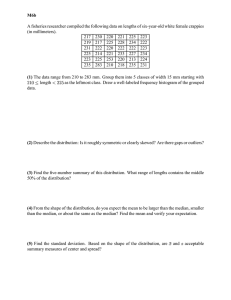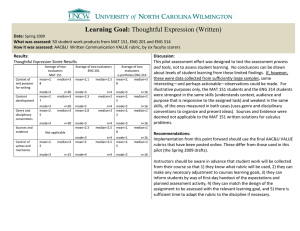Learning Goal:
advertisement
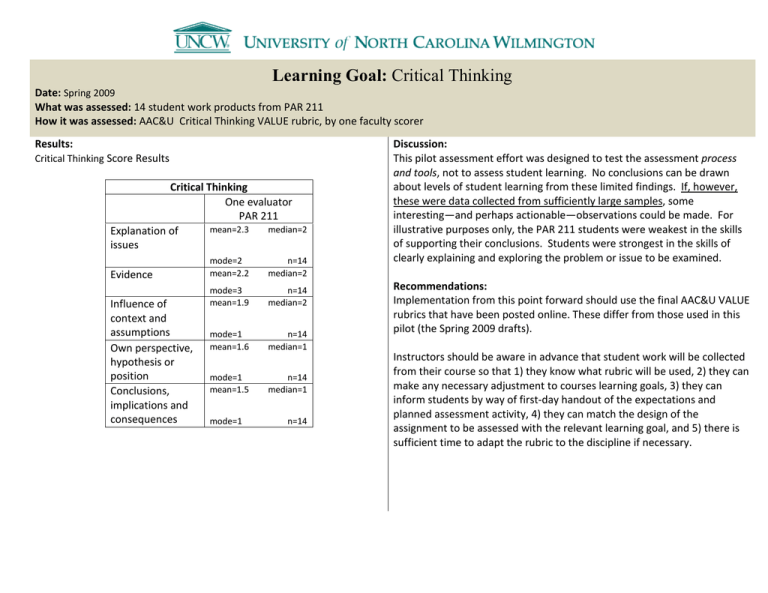
Learning Goal: Critical Thinking Date: Spring 2009 What was assessed: 14 student work products from PAR 211 How it was assessed: AAC&U Critical Thinking VALUE rubric, by one faculty scorer Results: Critical Thinking Score Results Critical Thinking One evaluator PAR 211 mean=2.3 median=2 Explanation of issues Evidence Influence of context and assumptions Own perspective, hypothesis or position Conclusions, implications and consequences mode=2 mean=2.2 n=14 median=2 mode=3 mean=1.9 n=14 median=2 mode=1 mean=1.6 n=14 median=1 mode=1 mean=1.5 n=14 median=1 mode=1 n=14 Discussion: This pilot assessment effort was designed to test the assessment process and tools, not to assess student learning. No conclusions can be drawn about levels of student learning from these limited findings. If, however, these were data collected from sufficiently large samples, some interesting—and perhaps actionable—observations could be made. For illustrative purposes only, the PAR 211 students were weakest in the skills of supporting their conclusions. Students were strongest in the skills of clearly explaining and exploring the problem or issue to be examined. Recommendations: Implementation from this point forward should use the final AAC&U VALUE rubrics that have been posted online. These differ from those used in this pilot (the Spring 2009 drafts). Instructors should be aware in advance that student work will be collected from their course so that 1) they know what rubric will be used, 2) they can make any necessary adjustment to courses learning goals, 3) they can inform students by way of first-day handout of the expectations and planned assessment activity, 4) they can match the design of the assignment to be assessed with the relevant learning goal, and 5) there is sufficient time to adapt the rubric to the discipline if necessary.
